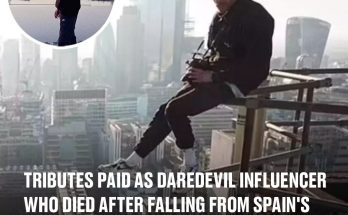IDF confirms eliminating multiple top Hezbollah commanders in Friday’s Beirut strike
Radwan Force leadership taken out; Hezbollah acknowledges 2 top leaders, 14 others died in attack that killed head of operations Ibrahim Aqil; Lebanon says overall death toll at 37
The IDF said Wahbi was among those involved in the planning of a Hezbollah invasion of the Galilee, and was also part of “advancing Hezbollah’s entrenchment in southern Lebanon, while attempting to improve the organization’s ground combat capabilities.”
Over the years and during the first months of the war, the military said Wahbi was involved in planning and carrying out rocket fire and infiltration attacks. Signifying his stature in Hezbollah, Wahbi, was identified by the terror group as a “commander.” Hezbollah rarely refers to its senior operatives slain in Israeli strikes as commanders.
Abiad told reporters 68 people were also wounded, of whom 15 remained in hospital, adding that search and rescue operations were still ongoing, with the number of casualties likely to rise. Minister of Public Works and Transport Ali Hamie told reporters at the scene that 23 people are still missing.
Lebanese troops cordoned off the area preventing people from reaching the building that was knocked down as members of the Lebanese Red Cross stood nearby to take any recovered body from under the rubble. On Saturday morning, Hezbollah’s media office took journalists on a tour of the scene of the airstrike where workers were still digging through the rubble.
Hezbollah in disarray
The deadly strike appeared to push Hezbollah into further disarray after the terror group suffered a pair of unprecedented attacks earlier this week in which thousands of pagers and walkie-talkies used by its members exploded, killing 37 people and wounding thousands. That attack was widely believed to have also been carried out by Israel, which has neither confirmed nor denied its involvement.
Following the strike, Hezbollah appointed senior officers Ali Karaki and Talal Hamia to jointly lead the terror group’s operations division following the killing of Aqil, the Saudi news outlet Al-Hadath reported.
Karaki is the head of Hezbollah’s southern command, responsible for the terror group’s military activity in south Lebanon, and Hamia is the head of Hezbollah’s Unit 910, the terror group’s foreign operations unit, responsible for attacks abroad.
The Jihad Council was believed to have had seven members, although now it was down to five following the killings of Aqil and Fuad Shukr, Hezbollah’s military chief, who was killed in July.
In a curt statement issued on Friday evening, soon after the start of Shabbat, Prime Minister Benjamin Netanyahu said, “Our goals are clear, and our actions speak for themselves.”
Before and after the strike targeting Aqil, Hezbollah fired some 200 rockets Friday at the northern Galilee and the Golan Heights. No casualties were reported following the barrages, which happened as the IDF alerted residents in the area to remain close to bomb shelters.
“They gathered underground, under a residential building, in the heart of the Dahiyeh, while using civilians as a human shield. They met to coordinate terror activities against Israeli civilians,” IDF Spokesman Rear Adm. Daniel Hagari said in a press conference.
“Aqil and the Radwan Force commanders who we attacked are the commanders who drew up and led the Hezbollah terror group’s plan, to be carried out on the day the order was given, to attack into the northern territory of the State of Israel — what they called ‘The plan to conquer the Galilee,’” Hagari said at his press conference on Friday evening.
In this planned invasion, “Hezbollah intended to raid Israeli territory, occupy the communities of the Galilee, and murder and kidnap Israeli citizens — similar to what Hamas did on October 7,” Hagari continued.
“The commanders who we eliminated today” had been overseeing attacks on Israeli citizens since October 8, and planned to carry out more such attacks,” he added, calling Aqil “a terrorist with a great deal of blood on his hands, responsible for the deaths of many civilians and innocents.”
The IDF said Aqil was involved in an anti-tank guided missile attack against an army post near Avivim in 2019, a bombing attack at the Megiddo Junction last year, and several attempts by Hezbollah operatives to infiltrate into Israel amid the war.
Not shedding a tear
The US had accused Aqil of a role in the Beirut truck bombings at the American embassy in April 1983, which killed 63 people, and a US Marine barracks six months later that killed 241 people. He was also wanted for directing the taking of American and German hostages in Lebanon in the 1980s.
The US had placed a $7 million bounty on Aqil’s head.
“Ibrahim Aqil, who was killed today, was responsible for the Beirut Embassy bombing 40 years ago. So nobody sheds a tear for him,” McGurk said while addressing the Israeli-American Council’s conference in Washington.
“That said, we have disagreements with the Israelis on tactics and how you kind of measure escalation risk. It is a very concerning situation. I’m very confident that through diplomacy, through deterrence and other means, we’ll work our way out of it,” he added.
Friday’s strike was just the third time Israel has targeted Beirut since the IDF began responding to cross-border fire from Hezbollah that began a day after Hamas’s October 7 onslaught.
In July, an Israeli airstrike in Beirut killed Hezbollah’s military chief Shukr, and before that in January, Hamas deputy leader Saleh al-Arouri was killed in an IAF strike in the Lebanese capital.
Hezbollah has pledged to continue its fire until there is a ceasefire in Gaza. Most of the strikes by both sides have been contained to the border area, but have forced tens of thousands of Israelis and Lebanese to evacuate their homes.
While Israel has repeated for months that it would prefer a diplomatic solution that would allow its residents to return to their homes, it has said it would use military force if necessary.
The US has sought to broker a deal, which among other things would see Hezbollah retreat 10 kilometers away from the border, in line with UN Security Resolution 1701, which the terror group has long violated. However, it has acknowledged that the surest way to strike such an agreement will be by first reaching a ceasefire in Gaza, which has also remained elusive.
Still, US special envoy Amos Hochstein told Israeli leaders during a visit earlier this week that launching a war against Hezbollah isn’t any more likely to secure Israel the conditions it is seeking to return its 60,000 evacuated residents to their homes and argued that the sides will ultimately be pushed to agree to the same deal currently on the table after both suffering major losses.
Israel announced earlier this week that it was amending its war objectives — formulated after Hamas invaded southern Israel from Gaza on October 7, slaughtered some 1,200 people and abducted 251 hostages — to add the additional imperative to return displaced northern residents safely to their homes.
So far, the skirmishes have resulted in 26 civilian deaths on the Israeli side, as well as the deaths of 22 IDF soldiers and reservists. There have also been several attacks from Syria, without any injuries.
Hezbollah has named 483 members who have been killed by Israel during the ongoing skirmishes, mostly in Lebanon but some also in Syria. Another 79 operatives from other terror groups, a Lebanese soldier, and dozens of civilians have also been killed.
Meanwhile, Kata’ib Hezbollah, an Iranian proxy operating in Iraq and Syria that is not directly affiliated with its Lebanese namesake, announced the death of a member in an alleged Israeli airstrike near Damascus on Friday morning.
The terror group said in a statement that Abu Haidar al-Khafaji served as a security advisor in the Damascus area.











